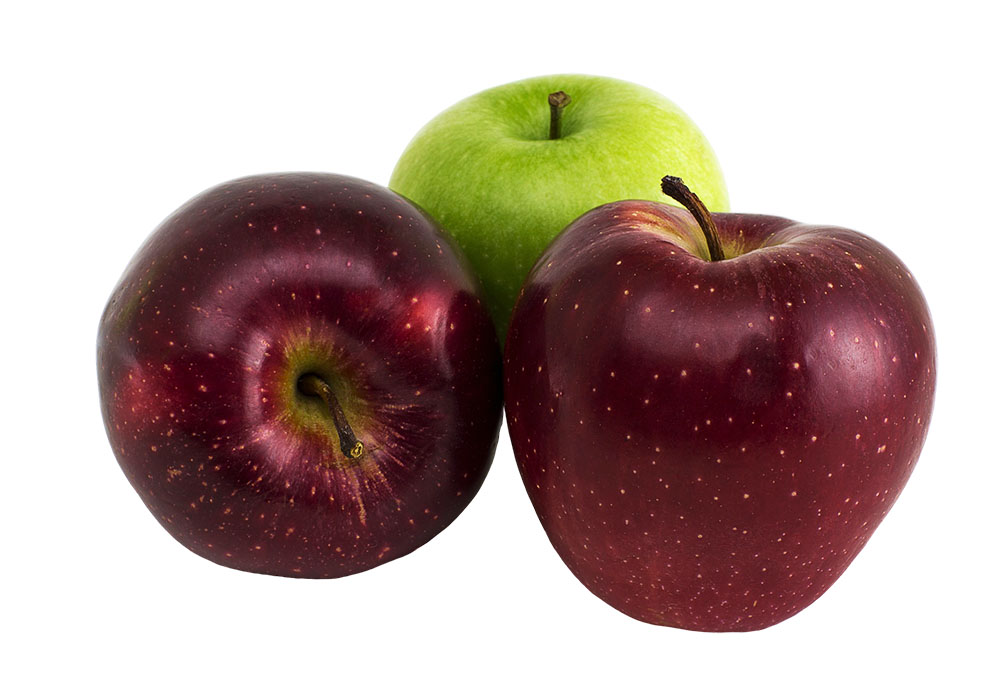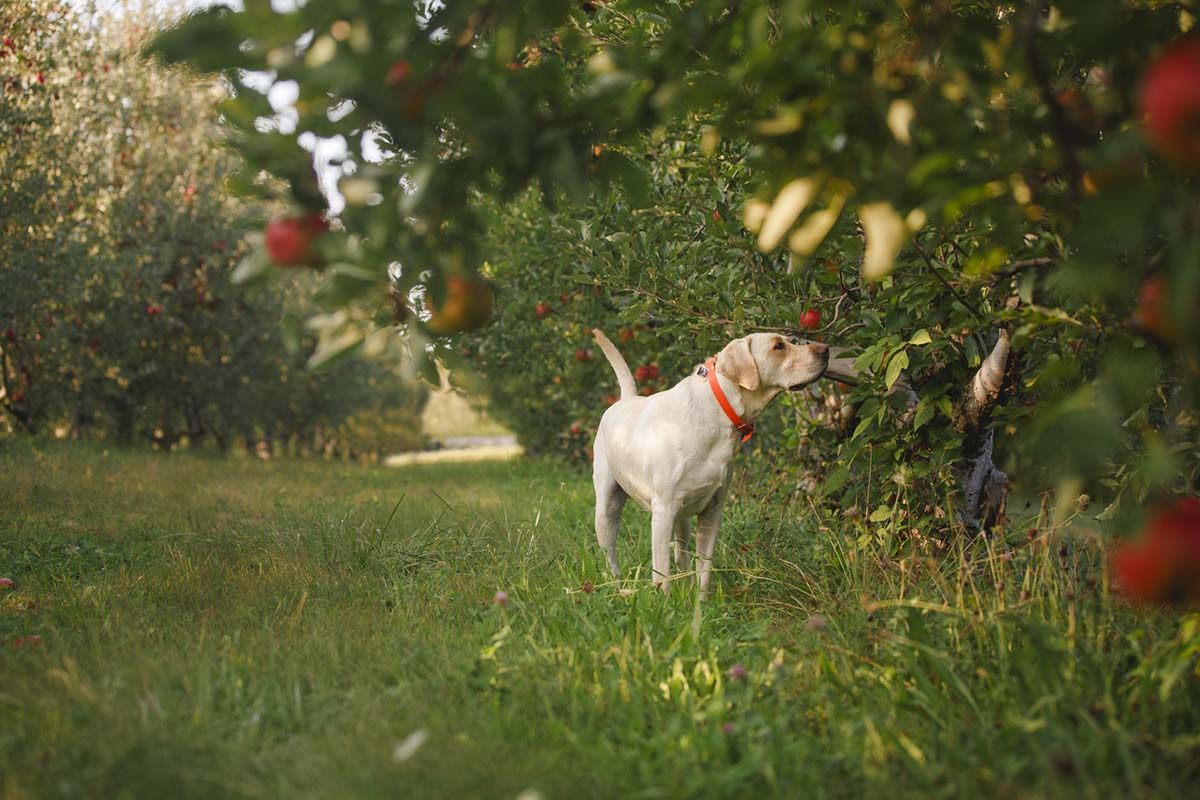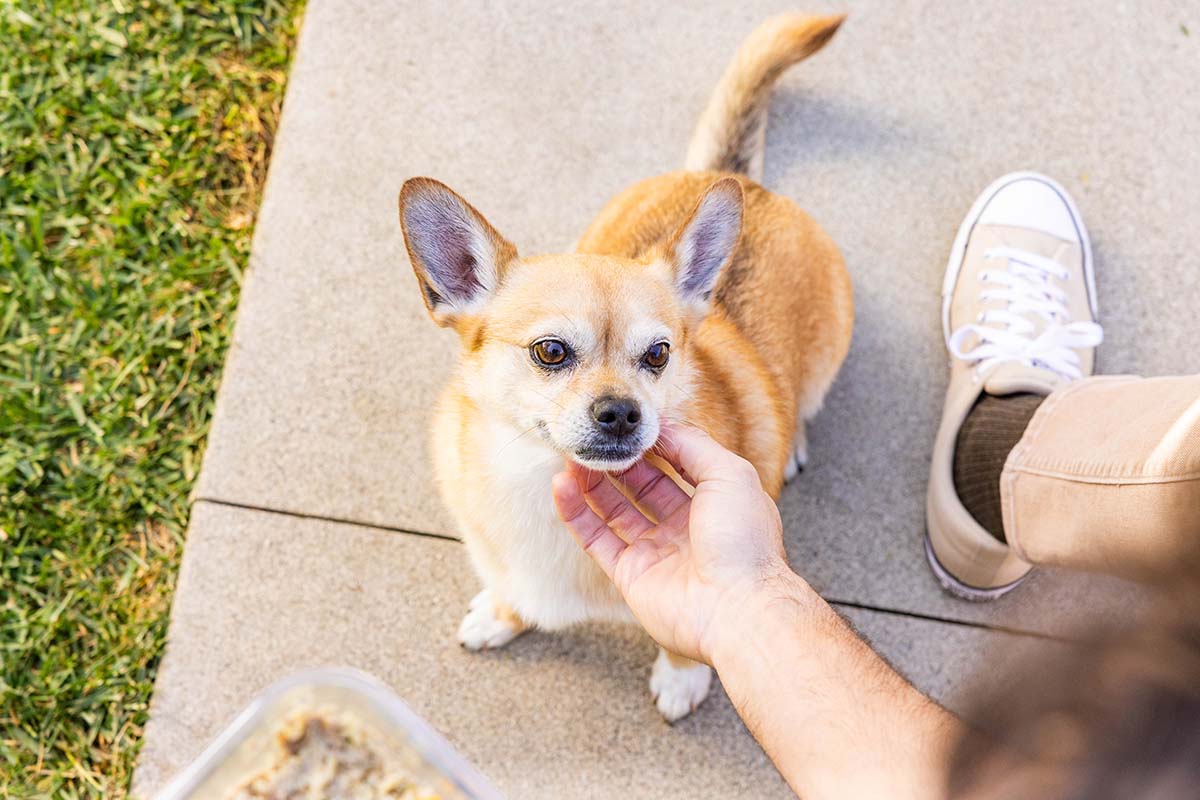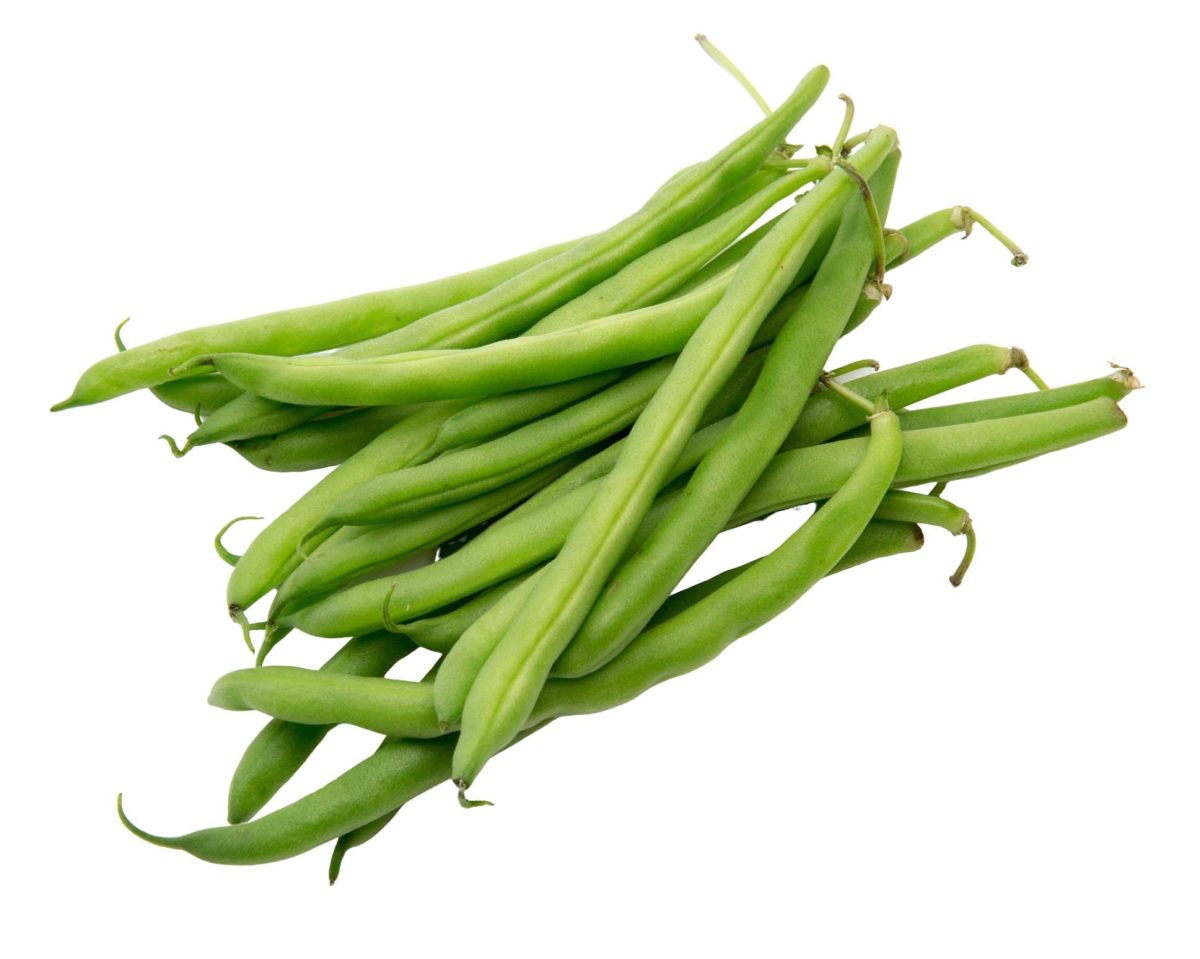Are Apples Good For Dogs?
Are apples good for dogs? Yes! Apples are not only delicious but also high in antioxidants and fiber.
Are apples good for dogs? Yes! Apples are not only delicious but also high in antioxidants and fiber. Dogs can eat apples as long as the core and seeds, which contain trace amounts of toxins, are removed. Just remember that moderation is key — treats should take up no more than 10% of your dog’s daily calories. And don’t forget to cut them into bite-sized pieces.
But does an apple a day keep the vet away? Let’s dive into how to properly incorporate human food like apples into your dog’s diet without risking a trip to the vet.
Nutritional Benefits of Apples

Apples are high in good nutrients like calcium, potassium, vitamin A, and vitamin C. Apples are also low-calorie and low-fat, making them a good choice for dogs who are trying to lose weight or maintain a healthy weight. As such, they are a crunchy, healthy snack substitute for traditional dog treats.
Here are some more details on the health benefits of apples and their properties:
- Vitamins A and C: Apples are a good source of vitamins A and C, which are important for a dog’s immune system. Vitamin A helps to keep the skin and coat healthy, while vitamin C helps to protect the body against infection.
- Fiber: Apple skin is a good source of fiber, which can help to keep your dog’s digestive system healthy. Fiber can also help to keep your dog feeling full, which can help to prevent overeating. The skin acts like a toothbrush and is also great for your dog’s teeth!
- Antioxidants: Apples are a good source of antioxidants, which can help to protect your dog’s cells from damage.
Overall, apples are a nutritious and tasty treat for dogs. Just be sure to remove the core and seeds, and give your dog no more than one to three apple slices per day.
How to Feed Apples to Dogs
As mentioned, it is important to never give your dog apple core or apple seeds. The core and seeds contain a small amount of cyanide, which can be harmful to dogs if ingested in large quantities. In addition, apple cores are a choking hazard as they can cause a blockage in the throat.
You can feed your dog apple slices, applesauce, or even frozen apples. Just be sure to start with a small amount and increase the amount gradually to make sure your dog does not have any adverse reactions like constipation or an upset stomach. Wash thoroughly to ensure its cleared of any residual pesticides.
If feeding your dog applesauce, make sure there is no added sugar. The only ingredient should be apples. No preservatives, sugar, or sugar substitutes like xylitol (also known as birch sugar). Skip the apple pie too.
Don’t forget that your dog’s food should be its primary source of nutrients. Apples are ok as an occasional treat (and not in large amounts). Treats should take up no more than 10% of your dog’s daily calories.
Always slowly introduce new foods to your dog in order to avoid any gastrointestinal issues.
Are There Any Apples That Are Not Safe for Dogs?
There are a few types of apples that are not safe for dogs. These include crab apples, wild apples, and ground cherries. These apples contain a higher concentration of cyanide than other types of apples, and they can be harmful to dogs if ingested.
When sharing apples with your dog, never give them a whole apple. Always cut this healthy treat into small pieces for your furry friend.
A Veterinarian’s Take on Apples in Dog Diets
Dr. John Tegzes, VMD, Diplomat American Board of Veterinary Toxicology from Western University of Health Sciences, provides a quick overview of how apples, apple seeds, and related fruits and plants can affect your dog’s health. He also covers the common concern about cyanide poisoning.
Full transcript below:
“We are talking about apple seeds and all plants part of the genus called prunus, which includes cherries, apples, almonds, apricots, plums, and peaches (the list goes on and on).
We’ve all heard these, some people think they’re myths and they’re not, that the pits contain cyanide — and that’s absolutely true. The pits of all of these fruits contain, in fact, the entire plant contains cyanide. The only parts that don’t are the edible fruits. But the stems, the leaves, the twigs, and the branches all contain cyanide.
Now it’s not in a high concentration. It’s not something that if you accidentally eat a few apple seeds or that if your dog eats a single peach pit that it’s going to be poisoned by the cyanide. Other problems can ensue, they can develop a gastric foreign body or a foreign body within their intestinal tract from a pit, but the toxicity, usually they need a little bit more than just what’s going to be found in pits and stems.
We know, however, dogs like to chew on sticks if you have sticks that fall off of a cherry tree or an apple tree. Those also can contain cyanide and so those are the types of branches and trees you do not want your dog nibbling on.
Again, probably one or two bites or a little bit of eating that isn’t going to cause acute toxicity. The species that we typically see dying from these plants are cows, goats, and sheep and we do see cases of those annually in California. This is because, in these areas, those animals are grazing or foraging on large volumes of the plant material of that type from those genesis plants.”
This content is for informational use only and does not replace professional nutrition and/or medical advice, diagnosis, or treatment. It is not a substitute for and should not be relied upon for specific nutrition and/or medical recommendations. Please talk with your veterinarian about any questions or concerns.








